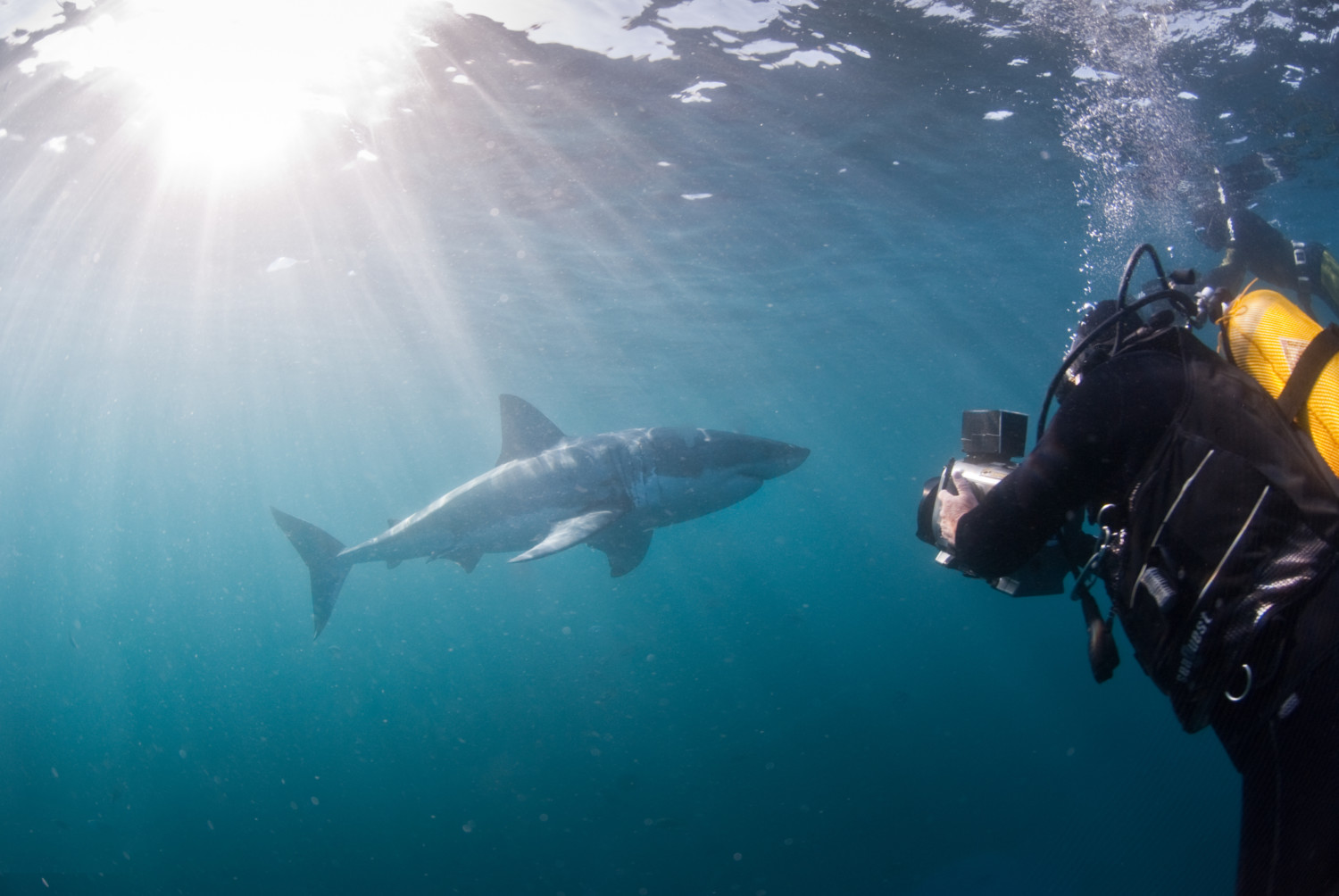It’s not unusual to find sharks along the Jersey shore — after all, the state of New Jersey includes 130 miles of Atlantic coastline and is home to a number of shark species, from mako sharks to dogfish and even the occasional whale shark. Great whites reside here, too: In 2018, a great white nursery was found in the New York-New Jersey Bight.
But the latest great white to make waves (literally!) in New Jersey is no baby shark — he’s a 998-pound creature with a name. Ironbound was first discovered and tagged near the Lunenburg, Nova Scotia, coast; he was named after the region’s West Ironbound Island. Ocearch, a marine research group, says he is 12 feet, 4 inches long.
He was swimming along the New Jersey shoreline as recently as May 9, but today he appears to be about 500 miles south, just off the coast of North Carolina, according to his tracker. (CNN reports that the tracker pings his location whenever he breaks the surface.) Ironbound has traveled 13,000 miles since 2019, when he was tagged.
“He’s gone back and forth from where we found him in Nova Scotia and the Florida Keys several times,” Ocearch chief scientist Bob Hueter told CNN. “The (sharks] are moving north to the very rich feeding grounds off of Canada and the northeastern U.S.”

Hueter says that great whites migrate each year, spending summers near Canada and then spending winters as far south as the eastern Gulf of Mexico. This is about the time of year when they start heading back north.
And if you find yourself with a certain tense “dun dunnn, dun dunnn” tune in your head after reading the above, well, who could blame you? The great white attacks from Steven Spielberg’s 1975 movie “Jaws” were reportedly inspired by true events from the summer of 1916, although the novel’s author, Peter Benchley, has denied the connection.
But although the great white is known as the world’s largest predatory fish, it is also classified as a vulnerable species under the International Union for Conservation of Species Red List, with a decreasing population caused partly from becoming bycatch in fishing nets along with fish destined for dinner tables.
And they aren’t the mindless killers that like the taste of humans that they’re often portrayed to be. Researchers say they may mistake humans for their usual prey. As an apex predator, they play a role in keeping oceans healthy, too.
As for this specific great white, here’s a look at Ironbound during his 2019 tagging process. This YouTube video lists the shark as No. 4 on Ocearch’s top 10 sharks the organization met in Nova Scotia:
Ironbound’s age has been estimated at about 20 years, and great whites have been known to live up to 70 years. So, assuming he doesn’t fall prey to some of the other issues that have decimated marine populations — from overfishing to climate change — we could be seeing him returning to the New Jersey area many more times in the next few decades. Track him yourself at Ocearch’s site.
This story originally appeared on Simplemost. Checkout Simplemost for additional stories.


